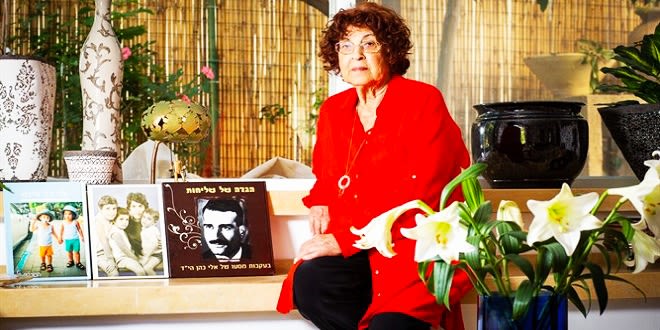In a remarkable development that brings back one of the most prominent intelligence issues in the history of the Arab-Israeli conflict, the office of Israeli Prime Minister Benjamin Netanyahu announced Israel's retrieval of over 2500 documents, images, and personal belongings belonging to the famous spy Eli Cohen, as part of a secret operation carried out inside Syria.
Among the retrieved items was an official Syrian archive that held important details related to his mission, which lasted for four years before his discovery and public execution in the Marjeh Square in Damascus on May 18, 1965.
Among the most notable retrieved documents was a handwritten will by Cohen just hours before his execution, in which he expressed moving words to his wife Nadia, urging her to take care of the family, think about the future, not dwell on the past, and even granting her the freedom to remarry to take care of their children Sophie, Iris, and Sha'ul. He concluded his message with: "To all of you, my final kisses."
The archive also included audio recordings, interrogation files, messages to his family, photos from his mission, as well as personal belongings like forged passports, photos with high-ranking Syrian officials, notebooks containing notes and diaries detailing the operations he carried out for the Mossad.
Mossad chief David Barnea emphasized the importance of the operation, describing it as a "great achievement carrying the highest ethical values, and a further step towards locating Cohen's burial place in Damascus," something Israel has been seeking for decades.
This archive was presented during a special meeting where Nadia Cohen met with the Israeli Prime Minister and the Mossad director, receiving part of her husband's personal belongings, in a scene reminiscent of a long journey of demanding Cohen's fate, led by his widow for decades.
This operation comes less than two weeks after Israel announced another operation in which the remains of a soldier killed during the invasion of Lebanon in 1982 were recovered, indicating intensified Israeli intelligence activities in Syria after the overthrow of former President Bashar al-Assad's regime in December 2024, as also revealed by statements from a Palestinian official mentioning intense Israeli attempts through mediators to access Cohen's remains and another missing soldier.
In 2018, Israel had retrieved Cohen's wristwatch in a secret operation, and later reports emerged about Russian mediation to retrieve more of his belongings, even his remains, without any announced results at that time.
This recent operation reopens one of the most sensitive and complex files in Mossad's history, showing the continued intense Israeli efforts to uncover the fate of one of its most famous spies, who succeeded in penetrating high levels of the Syrian leadership during his work period before being captured and executed, a scene that has remained present in the Middle East's memory for decades.

